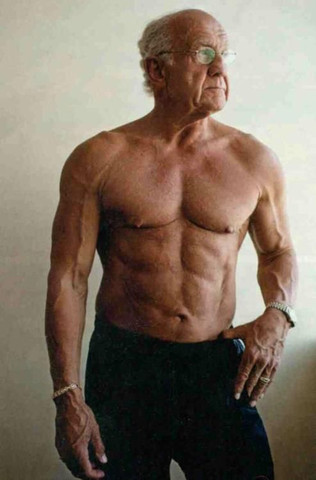Henry Ford once said, “whether you think you can, or whether you think you can’t, you’re probably right”. Well now new research shows that what we think is not just related to what we achieve in life, but to how quickly we age. 2 recently published studies have now directly shown that if we believe we are getting older, and attribute physical problems like fatigue, or metal problems like forgetting facts and names to our own ageing, we will in fact age faster.
The first study looked at how physical changes in the brain were affected by our beliefs. Subjects underwent MRI’s to look at the size and volume of the hippocampus region of the brain, which is the area most associated with memory. They actually found that those with negative views had a 300% greater rate of decline in volume of the hippocampus compared with those with more positive views!
They also looked at the accumulation of amyloid plaques (protein clusters between the brain cells) and neurofibrillary tangles (twisted strands or protein that build up within brain cells and block the transfer of nutrients). These 2 factors are recognised as key markers for developing Alzheimers and neurological degeneration. Again the researchers found that those with negative thoughts towards ageing had more plaques and tangles than those that didn’t
Lead study author Becca Levy, associate professor of public health and of psychology at the Yale School of Public Health, said “We believe it is the stress generated by the negative beliefs about ageing that individuals sometimes internalize from society that can result in pathological brain changes,” It also paves the way for further research into how all types of negative thinking patterns can create physical changes in the brain leading to degeneration and faster ageing.
In the second study led by the University of Toronto in Canada, participants aged from 56-96 completed a series of tests on hearing and memory, and who also underwent assessments of their views and potential concerns about getting older.When the researchers analyzed the results, the team found that participants who had negative views about ageing and who believed they had problems with their hearing and memory, also performed less well on tests of those abilities. In other words if people believe that any problems they have with hearing and memory are because they are getting older, then their hearing and memory will actually get worse than those who don’t dwell on their problems.

The study’s first author Professor Alison Chasten explained ”People’s feelings about getting older influence their sensory and cognitive functions. Those feelings are often rooted in stereotypes about getting older and comments made by those around them that their hearing and memory are failing.”
The fantastic news to come out of these studies is that we actually have control over these changes and can stop or slow degeneration by recognising and changing negative thought patterns associated with ageing. Levy noted “Although the findings are concerning, it is encouraging to realize that these negative beliefs about ageing can be mitigated and positive beliefs about ageing can be reinforced”.
Professor Chasten added “Knowing that changing how older adults feel about themselves could improve their abilities to hear and remember will enable the development of interventions to improve their quality of life.” The ramifications of this are far reaching, and knowing that we can change our the physiology of our bodies’ and their capabilities’ by thinking more positively is very powerful.
So this begs the question how do you change your thoughts? Well next time you catch yourself engaging in some negative self talk, and blaming something on your age or anything else for that matter. Stop for a second and allow that feeling to pass, then consider that there might just be another reason altogether. It’s a habit that takes some practise to do well, but if you stick with it, you might find it’s a habit that will change your life…
💬 Something on your mind? Share your thoughts in the comments. We love hearing from curious minds.
📩 And while you’re here, join our newsletter for more smart stuff (and secret perks)!
References
A Culture–Brain Link: Negative Age Stereotypes Predict Alzheimer’s Disease Biomarkers.
Levy, Becca R.; Ferrucci, Luigi; Zonderman, Alan B.; Slade, Martin D.; Troncoso, Juan; Resnick, Susan M. Psychology and Aging, Dec 7 , 2015.
Do Negative Views of Aging Influence Memory and Auditory Performance Through Self-Perceived Abilities?By Chasteen, Alison L.; Pichora-Fuller, M. Kathleen; Dupuis, Kate; Smith, Sherri; Singh, Gurjit. Psychology and Aging, Oct 19 , 2015




